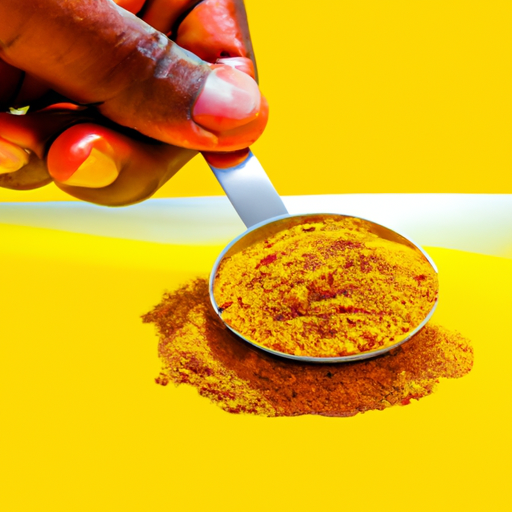If you’re feeling sick with a cold, you may be seeking natural remedies to help alleviate your symptoms. Two popular choices are ginger and turmeric, both known for their medicinal benefits that have been utilized for centuries.
In this article, we’ll explore the benefits of these two natural remedies for colds, as well as their differences and how to incorporate them into your daily routine.
Natural remedies are a great option for those who prefer to avoid over-the-counter medications or simply want to supplement their treatment plan. Ginger and turmeric are both known for their anti-inflammatory and antioxidant properties, which can help boost your immune system and alleviate symptoms such as congestion and sore throat.
But which one should you choose? Read on to learn more about the benefits of these natural remedies and how to use them effectively for the common cold.
Key Takeaways
- Ginger and turmeric are natural remedies for colds that have been used for centuries due to their medicinal properties.
- Both spices have anti-inflammatory and antioxidant properties that can boost the immune system and alleviate cold symptoms such as congestion and sore throat.
- Ginger tea and turmeric tea are both effective in soothing sore throats, reducing congestion, and boosting the immune system, while steam therapy with ginger or turmeric essential oil can help clear sinuses and relieve nasal congestion.
- While incorporating ginger and turmeric into the daily routine can have health benefits, precautions and side effects should be considered, and seeking medical attention when necessary is important, especially for those with weakened immune systems or chronic medical conditions.
The Benefits of Natural Remedies for Colds
Looking for a natural way to fight off a cold? Check out the amazing benefits of using ginger or turmeric as a remedy! Natural remedies have been used for centuries to treat various ailments, including the common cold. Unlike over-the-counter medications that may have unwanted side effects, natural remedies are safe and effective.
Ginger and turmeric are two of the most popular natural remedies for colds due to their anti-inflammatory and antioxidant properties. One way to use ginger or turmeric is by drinking herbal teas. Ginger tea is made by boiling ginger root in water for 10-15 minutes. Turmeric tea, on the other hand, is made by mixing turmeric powder with hot water and a sweetener of your choice. Both teas are known to soothe sore throats, reduce congestion, and boost the immune system.
Another way to use these spices is through steam therapy. Simply add a few drops of ginger or turmeric essential oil to a bowl of hot water and inhale the steam. This can help to clear your sinuses and relieve nasal congestion. As you can see, using natural remedies like ginger and turmeric can help to alleviate the symptoms of a cold.
In the next section, we’ll focus specifically on the benefits of using ginger for colds.
Ginger for Colds
If you’re feeling under the weather, ginger can be a great natural remedy for your cold. This root has anti-inflammatory and antioxidant properties that can boost your immune system and fight off illness. Ginger can also alleviate congestion and sore throat symptoms, making it a great addition to your cold-fighting arsenal.
To use ginger for colds, you can steep it in hot water for a soothing tea or add it to soups or stir-fries for a flavorful and healthy boost.
Anti-Inflammatory and Antioxidant Properties
You’ll be amazed at how ginger and turmeric can help soothe your cold with their potent anti-inflammatory and antioxidant properties. They’re like a warm and comforting blanket for your inflamed body. Both ginger and turmeric are known for their medicinal properties, and scientific evidence supports their anti-inflammatory effects.
Ginger contains compounds called gingerols and shogaols, which have been shown to reduce inflammation in the body. Turmeric, on the other hand, contains curcumin, a powerful antioxidant that can help reduce inflammation and fight off free radicals in the body. These anti-inflammatory and antioxidant properties make ginger and turmeric effective remedies for colds, as they can help reduce inflammation in the body and boost the immune system.
In the next section, we’ll explore how these spices can also help alleviate congestion and sore throat.
Alleviating Congestion and Sore Throat
Feeling congested and dealing with a sore throat can be a real pain, but there are natural remedies that can help alleviate these symptoms.
Home remedies such as herbal teas made from ginger or turmeric have been shown to be effective in reducing inflammation and relieving congestion. These spices contain compounds that have anti-inflammatory and antioxidant properties, which can help reduce swelling and irritation in the throat and nasal passages.
Herbal teas made from ginger or turmeric can also help soothe a sore throat. Ginger has been traditionally used for its warming properties, which can help ease the discomfort of a sore throat. Turmeric, on the other hand, has been shown to have antibacterial and antiviral properties, which can help fight off the infection causing the cold.
In the following section, we’ll discuss how to use ginger for colds to get the most out of this natural remedy.
How to Use Ginger for Colds
Get relief from the sniffles and sneezes with a simple and soothing solution. Ginger tea is a natural remedy that can help alleviate cold symptoms such as congestion, cough, and sore throat. Here are some benefits of ginger tea that you can enjoy when you have a cold:
- Anti-inflammatory properties: Ginger contains compounds that can reduce inflammation in the body, which can help soothe a sore throat and reduce congestion.
- Immune-boosting effects: Ginger is rich in antioxidants that can help strengthen your immune system and fight off infections.
- Natural pain reliever: Ginger has been used for centuries to relieve pain, including headaches and muscle aches that can accompany a cold.
- Soothing and calming: Drinking warm ginger tea can help calm your nerves and promote relaxation, which can be especially helpful if you’re feeling anxious or stressed due to your cold.
If you’re looking for a more flavorful option, you can also try mixing ginger with honey for a sweet and spicy concoction. Simply grate fresh ginger and add it to a cup of hot water with a spoonful of honey. This mixture can help soothe your throat and reduce coughing.
As you consider your options for natural remedies for colds, it’s worth exploring the benefits of turmeric.
Turmeric for Colds
If you’re looking for a natural remedy to alleviate cold symptoms, turmeric may be worth considering. Turmeric is a spice commonly used in Indian cuisine that has been shown to have anti-inflammatory and antioxidant properties. These properties may help reduce inflammation and increase immune function, which can improve cold symptoms such as sore throat, cough, and congestion.
One way to incorporate turmeric into your cold-fighting routine is by drinking turmeric tea. To make turmeric tea, simply boil water and add a teaspoon of turmeric powder, a pinch of black pepper, and a tablespoon of honey. You can also take turmeric supplements in pill form, but be sure to consult with a healthcare professional before adding any supplements to your regimen. While turmeric may be a helpful addition to your cold-fighting toolbox, it’s important to remember that it should not replace traditional medical treatment.
As you consider using turmeric for cold relief, it’s important to understand the differences between ginger and turmeric. While both spices have anti-inflammatory properties and may help alleviate cold symptoms, ginger is known for its ability to soothe upset stomachs and reduce nausea. The two spices also have different flavors, with ginger having a more pungent taste and turmeric having a slightly bitter taste. Incorporating both ginger and turmeric into your cold-fighting routine may provide a well-rounded approach to improving your symptoms.
Differences Between Ginger and Turmeric
You may be surprised to learn that ginger and turmeric have distinct differences in taste and health benefits. Ginger has a spicy and slightly sweet taste, while turmeric has a warm and bitter taste.
Ginger is known for its anti-inflammatory properties, making it a great addition to your diet for reducing pain and swelling. It also aids in digestion and can alleviate symptoms of nausea and vomiting.
On the other hand, turmeric contains curcumin, a powerful antioxidant that can protect against chronic diseases such as cancer and heart disease. It also has anti-inflammatory properties and can improve brain function and lower the risk of depression.
Both ginger and turmeric have a wide range of culinary uses. Ginger is commonly used in Asian cuisine, adding a zingy flavor to stir-fries, curries, and marinades. It can also be used to make ginger tea or added to smoothies for a spicy kick.
Turmeric is a staple in Indian and Middle Eastern cuisine, giving dishes a vibrant yellow color and adding depth to curries and rice dishes. It can also be used to make golden milk, a popular beverage made with turmeric, milk, and spices.
Combining ginger and turmeric in your diet can provide maximum health benefits, including reducing inflammation, improving digestion, and protecting against chronic diseases.
Combining Ginger and Turmeric for Maximum Benefits
By incorporating a blend of these two flavorful spices, ginger and turmeric, you can enjoy a multitude of health benefits and elevate the taste of your favorite dishes.
Both ginger and turmeric have powerful anti-inflammatory properties, which can help to reduce pain and swelling in the body. They’re also rich in antioxidants, which protect against cellular damage and may help to prevent chronic diseases like heart disease and cancer.
One great way to use ginger and turmeric together is by incorporating them into your cooking. There are many recipes utilizing ginger and turmeric, such as curries, soups, and stir-fries, that can help you reap the benefits of these spices. You can also add grated ginger and turmeric to your morning smoothie for a refreshing and healthy start to your day.
Beyond cold relief, ginger and turmeric can help to boost your immune system, aid digestion, and improve brain function. So why not add a little spice to your life and try incorporating ginger and turmeric into your diet today?
In addition to ginger and turmeric, there are other natural remedies for colds that you can try to help alleviate symptoms and support your immune system. One option is to consume vitamin C-rich foods like citrus fruits, berries, and leafy greens. You can also try herbal remedies like echinacea, elderberry, and garlic, which have been shown to have antiviral and immune-boosting properties.
By combining these natural remedies with a healthy diet, plenty of rest, and staying hydrated, you can help to reduce the duration and severity of your cold.
Other Natural Remedies for Colds
In addition to incorporating natural remedies like vitamin C-rich foods and herbal remedies, rest and hydration are also important in reducing the severity and duration of a cold. Drinking plenty of fluids such as water, herbal teas, and broths can help keep you hydrated and flush out toxins from your body.
Herbal teas, in particular, can provide additional benefits such as reducing inflammation and boosting your immune system. Chamomile tea, for example, has been shown to have anti-inflammatory properties and can help relieve symptoms such as sore throat and cough.
Aromatherapy remedies can also be helpful in reducing cold symptoms. Essential oils such as eucalyptus, peppermint, and tea tree oil can be added to a diffuser or mixed with a carrier oil and applied topically to help relieve congestion and soothe sore muscles. However, it’s important to use caution when using essential oils and to always dilute them properly before applying to your skin.
Adding these natural remedies to your routine can help support your body’s natural healing process and speed up your recovery. Incorporating ginger and turmeric into your daily routine can provide additional benefits and help you stay healthy.
Incorporating Ginger and Turmeric into Your Daily Routine
Spice up your daily routine with some powerful ingredients that can give your body an extra boost. Turmeric and ginger are two natural remedies that have been used for centuries to treat a variety of ailments, including the common cold. These ingredients contain anti-inflammatory and antioxidant properties that can help boost your immune system and reduce inflammation in your body.
Incorporating ginger and turmeric into your daily routine is easy and can be done in a variety of ways. You can add fresh ginger to your morning smoothie or tea, or take ginger supplements for a more concentrated dose. Turmeric can be used in a variety of recipes, from soups and stews to curries and smoothies. Check out the table below for some easy and delicious turmeric recipes and ginger supplement options. Remember to consult with your healthcare provider before incorporating any new supplements into your routine.
| Turmeric Recipes | Ginger Supplements |
|---|---|
| Turmeric Golden Milk | Nature’s Bounty Ginger Root Capsules |
| Turmeric Roasted Vegetables | Gaia Herbs Ginger Supreme |
| Turmeric Smoothie | New Chapter Ginger Force |
Now that you know how easy it is to incorporate these powerful ingredients into your daily routine, it’s important to also be aware of any precautions and side effects.
Precautions and Side Effects
Before you start incorporating ginger and turmeric into your daily routine, it’s important to be aware of potential precautions and side effects.
Allergies and sensitivities to these spices can cause a range of symptoms, including skin rash, itching, and difficulty breathing.
Additionally, both ginger and turmeric can interact with certain medications, so it’s important to talk to your healthcare provider before using them regularly.
Allergies and Sensitivities
It’s important to be mindful of any allergies or sensitivities when incorporating ginger or turmeric into your cold-fighting routine. While ginger and turmeric are generally considered safe and beneficial for most people, some individuals may experience adverse reactions due to food allergies or environmental sensitivities.
To help you determine whether ginger or turmeric is right for you, here’s a quick reference table outlining some of the most common allergies and sensitivities associated with these spices:
| Allergies/Sensitivities | Ginger | Turmeric |
|---|---|---|
| Food allergies | May cause reactions in individuals allergic to ginger or other members of the Zingiberaceae family, such as cardamom or turmeric | May cause reactions in individuals allergic to turmeric or other members of the ginger family, such as ginger or galangal |
| Environmental sensitivities | May cause skin irritation or respiratory symptoms in individuals sensitive to the strong aroma of ginger | May cause skin irritation or respiratory symptoms in individuals sensitive to the strong aroma of turmeric |
It’s important to note that this table is not exhaustive and that everyone’s individual response to ginger and turmeric may vary. If you have known allergies or sensitivities, it’s always best to consult with a healthcare provider before incorporating these spices into your diet. In the next section, we’ll discuss the potential interactions that ginger and turmeric may have with certain medications.
Interactions with Medications
Be cautious about incorporating these spices into your routine if you’re currently taking any medications, as ginger and turmeric may interact with certain drugs. While ginger and turmeric have been used as natural remedies for centuries, it’s important to note that they can interact with some prescription medications.
Here are some potential discussion ideas about interactions with medications:
-
Common drug interactions: Ginger and turmeric can interact with blood thinners, such as warfarin, and increase the risk of bleeding. They can also interact with medications for diabetes, high blood pressure, and acid reflux.
-
How to talk to your doctor about natural remedies: If you’re interested in incorporating ginger or turmeric into your routine, it’s important to talk to your doctor first. They can advise you on potential interactions with any medications you’re taking and help you determine whether these spices are safe for you to use.
It’s important to be aware of potential interactions between natural remedies and prescription medications. If you experience any unusual symptoms or side effects, it’s important to seek medical attention.
When to See a Doctor
If you start experiencing severe symptoms such as high fever, difficulty breathing, or chest pain, you should seek medical attention immediately.
While ginger and turmeric can provide some relief for cold symptoms, they’re not a substitute for professional medical care.
If your cold symptoms persist for more than a week or worsen, it may be a sign of a more serious condition such as pneumonia or bronchitis. In such cases, it’s important to see a doctor as soon as possible.
In addition, if you have a weakened immune system or a chronic medical condition such as asthma or diabetes, you should also seek medical attention if you develop a cold. These conditions can make it harder for your body to fight off infections and increase your risk of complications.
Your doctor can provide you with personalized advice on how to manage your symptoms and prevent further health problems. Remember, taking care of your health is important, and seeking medical attention when necessary can help you recover faster and avoid complications.
Frequently Asked Questions
How long does it take for ginger or turmeric to relieve cold symptoms?
On average, it takes 7-10 days for cold symptoms to resolve on their own. While ginger and turmeric have benefits for overall health, there is limited evidence on their effectiveness for colds. Side effects are rare but possible.
Can ginger or turmeric be used as a replacement for traditional cold medicine?
When it comes to natural remedies vs traditional medicine for colds, ginger and turmeric can be effective options. While both have anti-inflammatory properties, ginger may be more effective for respiratory symptoms. However, consulting a healthcare provider is always recommended.
Are there any contraindications for using ginger or turmeric for colds?
Before using ginger or turmeric for a cold, it’s important to consider potential interactions with medications or health conditions. Some people have reported success using these natural remedies, but individual results may vary.
What is the recommended dosage of ginger or turmeric for colds?
When looking for natural remedies for colds, ginger and turmeric are both great options. Ginger is known for its anti-inflammatory properties, while turmeric has antimicrobial effects. There is no recommended dosage, but it’s best to consult a healthcare professional.
Can ginger or turmeric be used for other respiratory illnesses besides colds?
Looking for herbal remedies to support your respiratory health? Ginger and turmeric have anti-inflammatory properties that may be beneficial for various respiratory illnesses. Consult with a healthcare provider for personalized recommendations.
Conclusion
Congratulations! You’ve learned about the benefits of using natural remedies for colds, specifically ginger and turmeric.
Both of these spices have anti-inflammatory and antibacterial properties that can help alleviate cold symptoms, such as coughing, sore throat, and congestion.
If you’re still feeling skeptical about the effectiveness of these remedies, let me share with you a real-life example. A study conducted in 2013 found that a mixture of ginger, honey, and lemon juice was more effective in treating cold symptoms than a placebo. Participants reported significant improvements in their symptoms after taking the ginger mixture for five days.
While ginger and turmeric are great natural remedies for colds, it’s important to remember that they’re not the only options. Other remedies, such as garlic, echinacea, and zinc, can also help boost your immune system and alleviate cold symptoms.
Incorporating ginger and turmeric into your daily routine can be as simple as adding them to your meals or drinking them as teas. However, it’s important to be cautious and consult with your doctor if you have any underlying health conditions or are taking any medications that may interact with these spices.
Remember, natural remedies can be a powerful tool in the fight against colds, but they’re not a substitute for medical treatment. If your symptoms persist or worsen, don’t hesitate to seek medical attention.
Stay healthy and happy!










